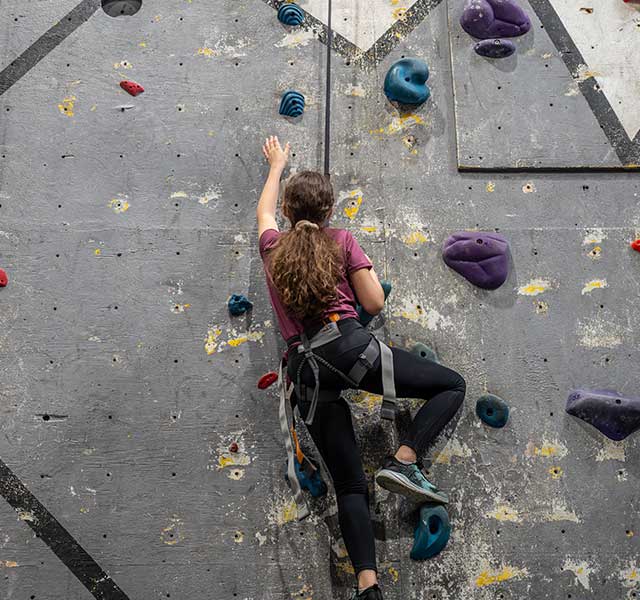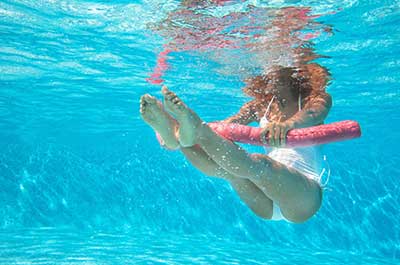The 2024 Olympic Games are kicking off in Paris with four new sports joining the competition.
“Almost every four-year cycle, the Olympics will include new events and drop others,” says Jeffrey S. Kutcher, M.D., a sports neurologist at the Henry Ford Kutcher Clinic for Concussion and Sports Neurology. The four new events joining the games in 2024—breaking, skateboarding, sport climbing and surfing—are associated with youth, creativity and athleticism.
New Summer Olympic Events
In addition to Olympic favorites like gymnastics, diving and volleyball, the 2024 games will include four youth-focused favorites that are not only fun to watch, but also cultivate a sense of community.
“The new additions to the games reflect what’s going on in society,” Dr. Kutcher says. “They capture the imagination and allow us to push the boundaries of possibility.”
With these new sports, the International Olympic Committee hopes to “set a new standard for inclusive, gender-balanced and youth-centered Games.” While breaking will make its debut in 2024, the other three sports will be part of the games for the second time. A bit more about each sport:
Breaking
Short for breakdancing, breaking is a callback to the hip-hop culture of the 1980s that combines athletic ability and artistic expression. In the men’s (B-boys) and women’s events (B-Girls), breaking participants will improvise to a DJ’s music collection using a variety of acrobatic moves, such as “windmills,” which involve spinning low to the ground.
Skateboarding
As in its Tokyo Olympics debut, skateboarding in Paris will include two categories:
- Park, a curved arena with bowls and bends that resembles your local skate park
- Street, a road-like course featuring obstacles like stairs and handrails
Judges base their scores on difficulty, speed and variety of moves.
Sport climbing
Similar to rock climbing, sport climbing is a youth-focused sport that has grown in popularity in recent years. According to the IOC, nearly 40% of climbers are under 18.
Olympic-level sport climbing involves three formats:
- Bouldering, where athletes climb walls without ropes
- Lead, wall climbing as high as possible in six minutes
- Speed, a race against time
Surfing
In Olympic surfing, judges score surfers not only on the variety and type of tricks, but also their speed, power and flow (how each move seamlessly flows into the next). Surfers competing in the Paris Olympics will perform on shortboards, but longboards are preferred for newbies since they move more slowly over the water.
The Health Benefits of New Summer Olympic Sports
All four of these new sports require a degree of athleticism. And while each is different from the others, there’s overlap as it relates to their physical and mental health benefits.

Go Where The Pros Go
“Three of the four new sports—skateboarding, surfing and breaking—have an artistic component to them like ice skating and gymnastics,” Dr. Kutcher says. “That creative component is not only good for the body, but also for the mind.”
In fact, if you want to live a long, healthy, independent life, Dr. Kutcher says it’s important to choose activities that challenge you in new and different ways. “Long-term brain health isn’t necessarily about running 50 miles a week or lifting weights and building strength, it’s about being athletic,” Dr. Kutcher says.
Each of these sports demands a lot from participants’ brains, including:
- Complex movements
- Balance
- Planning
- Reaction time
Staying Safe During Sports Activities
Breaking, skateboarding, sport climbing and surfing can be fun recreational sports no matter what your age or skill level. But each of these sports comes with a certain degree of risk (some more so than others).
You can try breaking, skateboarding and surfing on your own, but if you’re interested in sport climbing, it makes sense to work with a professional. You might even consider picking up one of the three sports that were dropped from this year’s Olympics: baseball, softball and karate.
No matter which sport you choose, keep in mind that you’re having fun and getting some exercise, not competing in the Olympics. Most importantly, be sure to wear appropriate safety equipment—knee and elbow pads and a helmet. And make sure to ask the experts about what type of gear you need to stay safe.



